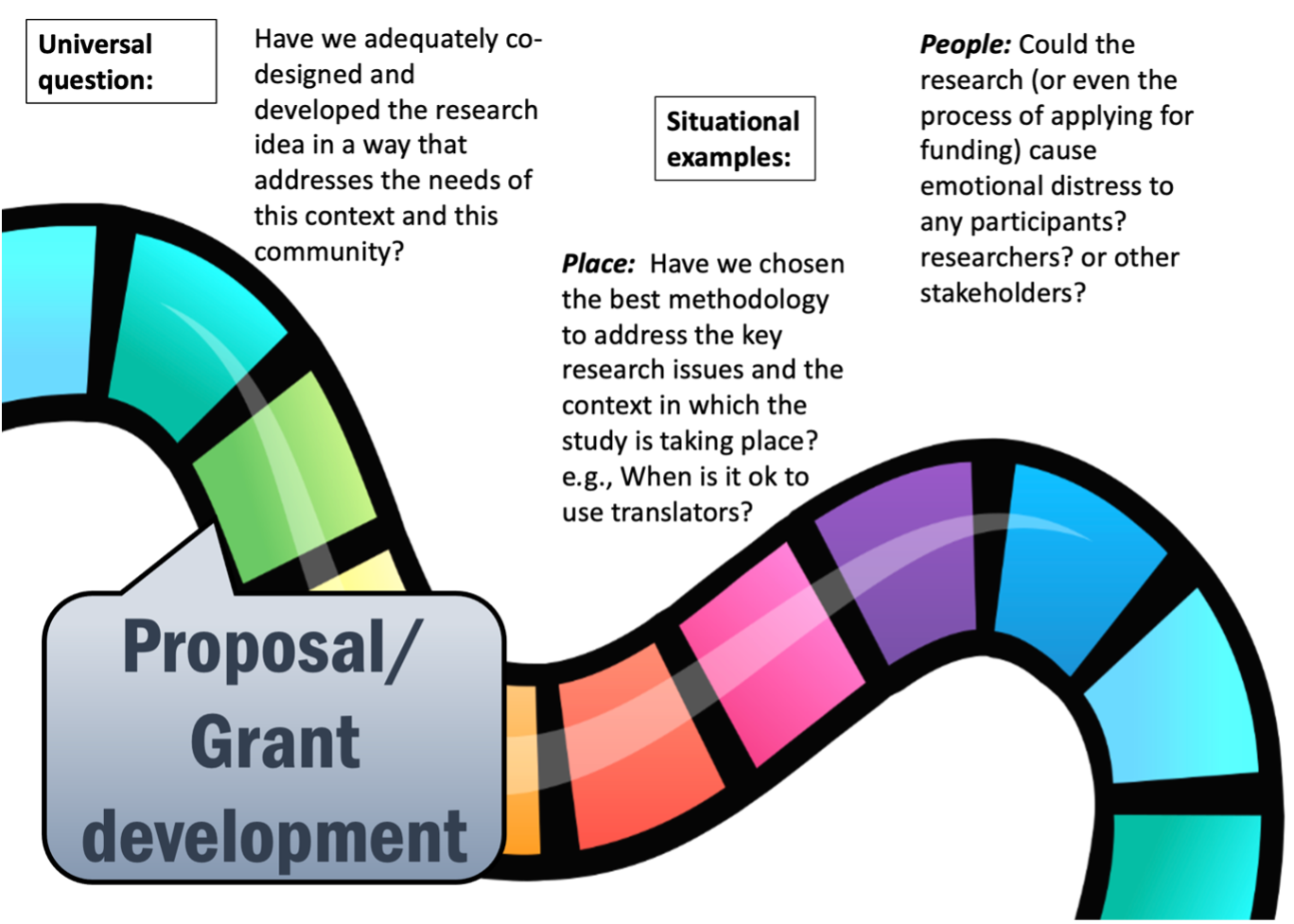|
Stage 4 PROPOSAL/GRANT DEVELOPMENT AND FUNDING SECURED
|
Developing the proposal is a seminal time for defining ideas, methodologies, philosophies, pragmatics and contextual idiosyncrasies. It is a critical time for identifying ethical dilemmas and challenges. More importantly it is a time for deciding on an ethical process for resolving challenges that may arise later. Developing a research idea into a comprehensive proposal and securing funding/resourcing is a critical time for deciding what is to be done, how it is to be done and what the likely outcomes/impacts are. During the proposal development all stages of the research journey need to be considered – including the intended impact and legacy. |
|||
|
|
||||
|
Being alert to ethical dilemmas |
||||
|
What ethical issues are being triggered by the criteria and structure of this grant application? |
Supporting considerations:
|
|||
|
Working towards solutions |
||||
|
Place |
People |
Principles |
Precedent |
|
|
In your proposal consider enough time and budget for each of the communities involved (local and global) to know one another and to consider issues of cultural security and place-sensitive research. Discuss with your team and partners how you can develop a proposal with cultural sensitivity. |
Work with local partners during the development process. Listen carefully because they know their own context deeply. Use co-design principles wherever possible. Ensure that there is adequate time for all partners to consider, review and contribute in the elaboration of the proposal. Don't be afraid to discuss the relevant issues, this is the time to do it to prevent subsequent ethical conflicts and misunderstandings.
|
Respect the rights and promote the well-being of participants and the local community. Think carefully about strategies for managing when there are conflicts of rights. Adapt your research methods to prioritise these factors. Make sure that the typical success rate of applications to the funder are known so that local partners are aware of the risk of unsuccessful funding applications
|
Review the previous literature and the track record of grant outcomes from this funder and/or in this area. Probably other researchers have already had similar ideas (and ethical conflicts). Let's learn from it to elaborate our proposal. |
|
Body
